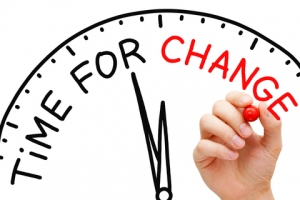WHY SHOULD I BUY A BUSINESS IN 2017?……………..
It’s that time of year for sober resolutions like shedding some pounds, quitting smoking and buying a gym membership with the sincere belief that you’ll get your money’s worth.
Returning to the drab reality of our 9-5, many of us also sit at our desk dreaming of a new career path. So what better New Year’s resolution than to become your own boss?
In recent years it seems a growing number of Australians have done just that. According to the Australian Bureau of Statistics, the entry rate for businesses increased from 11.3 percent between 2012-2013 to 13.7 percent between 2013-2014.
National Australia Bank (NAB) executive general manager for small business Leigh O’Neill told the Australian that the small business sector is “really energised by the value it adds to the Australian economy”. She also declared her admiration for the growing number of women in business and “the wonderful gutsy attitude” of small business owners who are “really giving it a go”.
Why should I buy?
‘Start-up’ may sound glamorous and you might think “why should I buy someone else’s business when I can start my own?” However, many who start a business struggle to keep their new businesses afloat.
Indeed, almost 50 percent of start-ups fail within the first year of trading, according to the Australian government. You have to start from scratch: no customers, no brand awareness, no guarantee that your big idea will fly. An exciting challenge, sure – but a gamble and a lot of hard work, nonetheless.
Buying an established business is less risky. Rather than working on assumptions about your prospective market and cash-flow projections, a business with a trading history generates revenue from day one.
You can make realistic projections about future profits – indeed, even deciding which business to buy in the first place – based on its previous years’ trading figures.
Buying a business confers on you a ready-built going concern. Already established in the local community it dodges some of those difficult start-up hurdles: training employees, building up your credit rating, building your brand and reputation, generating revenue from scratch.
A ready-built brand is another invaluable benefit of buying a business and one you should never underestimate (we all recognise the immense value of the iconic swoosh or bitten apple). With brand recognition comes respect from consumers, lenders and suppliers.
Perhaps the hardest part of starting a business is building a strong customer base. When you buy a business the price is partly determined by an intangible yet invaluable asset, ‘goodwill’ (an investment in the loyalty of pre-existing customers).
With an established market presence comes a loyal customer base (so long as you choose your acquisition wisely), so all the hard work is done for you – it’s just down to you to maintain and build on its success.
What next?
If you’re interested in buying a business, there are certain things you will need to consider.
Here’s a summary of the key points:
Budget
Only pay what you can afford and don’t overstretch yourself financially. Consider not just the initial investment but whether you can afford to honour any loan repayments based on the business’s ability to generate revenue.
Professional advice
Not everyone appoints a business broker and/or accountant to help them with their acquisition, but they could help you get the right business at the lowest price possible. Make sure you employ an accountant or agent who knows the local area and is familiar with the market.
Location
Location is obviously a factor – particularly for bricks-and-mortar retailers that rely on footfall. If his applies to you, assess whether the area is a prime trading area and research the local demographics, competition and economic outlook.
Due diligence
Thorough due diligence checks – uncovering the true reasons behind the sale and the full, unvarnished facts about the business’s health or lack thereof – are vital. Are there any hidden liabilities that could land you with unexpected costs and legal consequences? Does it have a bad reputation, or any outstanding debt?
Market research
It’s not just about the health of the business itself; you must also understand the trading environment. Can you rely on the loyalty of its customer base? Even if historic trading figures are positive, can you foresee any negative consumer trends underway or on the horizon (think DVD hire stores in the late 90s)?
To gain a better understanding of the forecasted returns and future financial needs of your new business, look at any projected financial statements. Can the business owner justify these projections based on the market and its trajectory?
Legalities
Don’t rush or skim read. Take your time to carefully read the purchase agreement, taking into consideration all assets and leases alongside any registered trademarks, copyrights, patents and intellectual property. If this sounds scary, then it could be – if you fail to get the right professional advice.
Any business acquisition takes a considerable amount of time, money and commitment, so don’t expect it to happen overnight. Set against the – admittedly exhilarating, but so too is taking an existing success story to a whole new level – challenge of starting a business from scratch though, it’s arguably a much smoother ride.
Buying a business could well be the head start into the business world that you’re looking for as you skip the perils of the start-up. Could 2017 be the year you finally take the plunge?
Melanie Luff, BusinessesForSale.com




